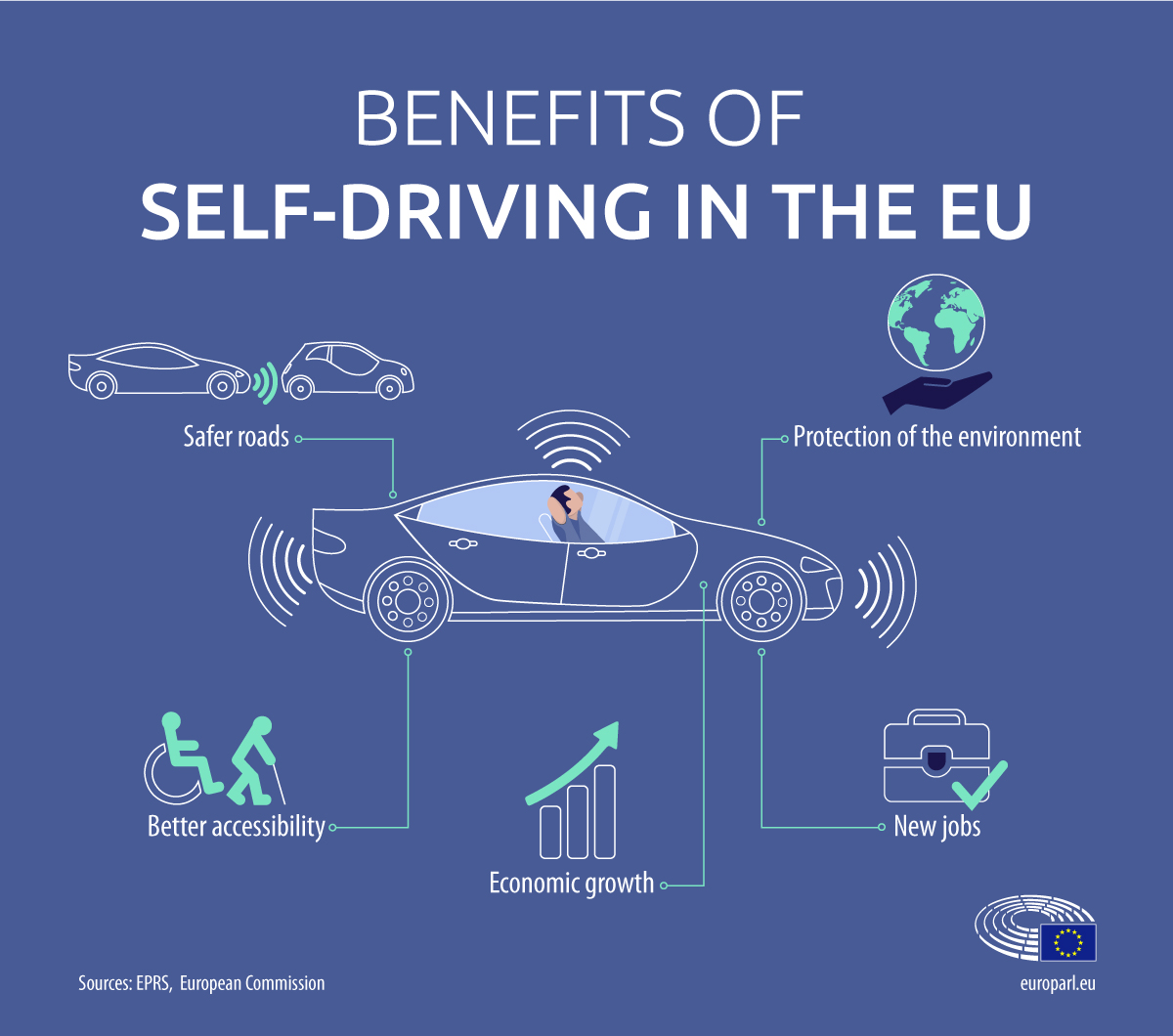The Benefits of Self-Driving Cars
In today’s rapidly advancing technological landscape, self-driving cars have emerged as a revolutionary innovation that is set to transform the way we travel. With the potential to enhance safety, efficiency, and convenience, self-driving cars offer a myriad of benefits that are poised to revolutionize the automotive industry. In this article, we will explore the numerous advantages of self-driving cars and shed light on how they can positively impact our lives.
Enhanced Safety
One of the most significant benefits of self-driving cars is their potential to enhance road safety. With advanced sensors, cameras, and artificial intelligence algorithms, self-driving cars can detect and respond to potential hazards more quickly and accurately than human drivers. By eliminating human error, which is responsible for the majority of road accidents, self-driving cars have the potential to save countless lives.
Reduced Traffic Congestion
Traffic congestion is a pervasive problem in many urban areas, leading to wasted time, increased fuel consumption, and heightened levels of pollution. Self-driving cars can help alleviate this issue by optimizing traffic flow through intelligent routing and coordination. By communicating with each other and utilizing real-time traffic data, self-driving cars can navigate more efficiently, reducing congestion and improving overall traffic flow.
Increased Mobility
Self-driving cars have the potential to significantly increase mobility for individuals who are unable to drive due to age, disability, or other factors. By providing a safe and reliable transportation option, self-driving cars can empower individuals who would otherwise be reliant on others for transportation. This increased mobility can lead to greater independence and a higher quality of life for many people.
Improved Fuel Efficiency
With their advanced technology and ability to optimize driving patterns, self-driving cars have the potential to significantly improve fuel efficiency. By minimizing unnecessary acceleration, braking, and idling, self-driving cars can reduce fuel consumption and emissions. This not only benefits the environment by reducing carbon dioxide emissions but also helps drivers save money on fuel costs.
Enhanced Productivity
Self-driving cars have the potential to transform commuting time into productive time. Instead of focusing on driving, passengers can utilize their travel time for work, relaxation, or leisure activities. This increased productivity can have a positive impact on individuals’ work-life balance and overall well-being.
Greater Accessibility
Self-driving cars can make transportation more accessible to individuals in remote areas or areas with limited public transportation options. By providing a reliable and convenient mode of transportation, self-driving cars can bridge the gap between urban and rural areas, ensuring that everyone has access to essential services and opportunities.

Self-driving cars have the potential to revolutionize the way we travel, offering numerous benefits ranging from enhanced safety and reduced traffic congestion to increased mobility and improved fuel efficiency. By harnessing advanced technologies, self-driving cars can pave the way for a future that is safer, more efficient, and more accessible for all. As we continue to embrace this transformative technology, the benefits of self-driving cars will undoubtedly reshape the automotive industry and our daily lives.
Frequently Asked Questions about the Benefits of Self-Driving Cars
1. What are the main benefits of self-driving cars?
Self-driving cars offer numerous benefits, including improved road safety, reduced traffic congestion, increased mobility for people with disabilities, and enhanced fuel efficiency.
2. How do self-driving cars improve road safety?
Self-driving cars use advanced sensors and artificial intelligence to detect and respond to potential hazards more quickly and accurately than human drivers, reducing the risk of accidents caused by human error.
3. Can self-driving cars help reduce traffic congestion?
Yes, self-driving cars can help alleviate traffic congestion by optimizing traffic flow, reducing the number of accidents and traffic jams, and enabling vehicles to communicate and coordinate with each other.
4. Are there any environmental benefits of self-driving cars?
Self-driving cars can contribute to environmental sustainability by promoting fuel efficiency through optimized driving routes, reducing emissions, and facilitating the adoption of electric and hybrid vehicles.
5. How can self-driving cars improve mobility for people with disabilities?
Self-driving cars can provide greater independence and mobility for people with disabilities who may have difficulties operating traditional vehicles. These cars can enable them to travel more easily and safely without relying on others.
6. Do self-driving cars have the potential to save lives?
Yes, self-driving cars have the potential to significantly reduce the number of traffic-related fatalities by eliminating human errors, such as drunk driving, distracted driving, and speeding.
7. Will self-driving cars make transportation more affordable?
Self-driving cars have the potential to reduce transportation costs by optimizing fuel consumption, minimizing the need for parking spaces, and potentially enabling shared mobility services, which can be more cost-effective than traditional car ownership.
8. Can self-driving cars improve productivity during commutes?
Yes, self-driving cars can free up time during commutes, allowing passengers to engage in other activities such as work, leisure, or relaxation, thereby increasing productivity and reducing stress.
9. Are self-driving cars more efficient in terms of fuel consumption?
Self-driving cars can optimize driving patterns, reduce unnecessary acceleration and braking, and choose the most efficient routes, leading to improved fuel efficiency and reduced energy consumption.
10. What role do self-driving cars play in the future of transportation?
Self-driving cars are expected to play a significant role in the future of transportation by revolutionizing mobility, improving safety, reducing congestion, and transforming the way people and goods are transported.




